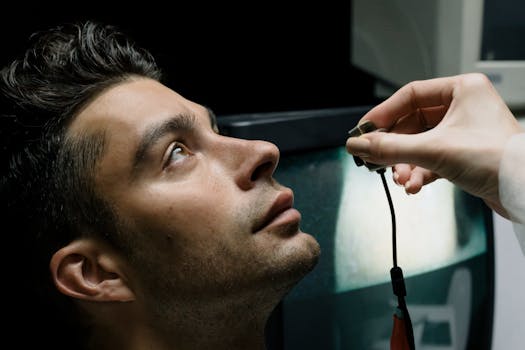happpy.news is an open source project, made with ♥ by reuben armstrong
and powered by this advert ^ from charity.marketing
In a major medical triumph, a team of specialists replaced an entire human eye, restoring hope for patients with irreversible vision loss. The procedure paves the way for advanced transplant techniques and renewed possibilities in vision care. Health is wealth, seeing is believing!

In a groundbreaking achievement that could reshape the future of ophthalmology, a team of specialized surgeons has successfully performed the first human eye transplant. This pioneering procedure, which involved replacing an entire human eye, marks a significant milestone in the quest to restore vision to patients suffering from irreversible vision loss. The operation not only demonstrates the incredible potential of modern medicine but also brings renewed hope to millions affected by severe ocular conditions.
The eye transplant was conducted at a leading medical facility, where a dedicated team of ophthalmologists and transplant surgeons collaborated to ensure the success of the operation. This remarkable feat was made possible through advances in surgical techniques and a deeper understanding of ocular anatomy, allowing for the intricate replacement of an entire eye—something once thought impossible.
Patients suffering from conditions such as corneal blindness, retinal degenerative diseases, and traumatic injuries often face a bleak future. For many, the possibility of losing their sight is a devastating reality. However, with this pioneering surgery, the horizon looks brighter than ever. The surgical team reported that the recipient of the eye transplant has shown promising early results, demonstrating signs of visual function that had been lost prior to the surgery.
One of the key factors contributing to the success of this transplant is the use of advanced immunosuppressive therapies, which help prevent rejection of the transplanted eye. These therapies, combined with innovative surgical techniques, have opened the door to the possibility of not only eye transplants but also other complex organ transplants in the future.
The implications of this surgery extend beyond individual patients. As researchers continue to study the outcomes of this procedure, they are hopeful that eye transplants could lead to broader advancements in regenerative medicine. This could encourage similar approaches for other organs, ultimately transforming how we address organ failure and loss in countless patients.
The ethical considerations surrounding organ transplants, particularly for highly specialized structures like the eye, are complex. However, this successful surgery underscores the importance of ongoing discussions about organ donation and the need for an increased number of donors. As society learns more about the potential impact of organ transplants, it becomes crucial to foster an environment that encourages donations and supports those in need.
While this achievement is monumental, it also serves as a reminder of the challenges that lie ahead. Researchers and medical professionals will need to conduct extensive studies to understand the long-term effects of eye transplants and refine surgical techniques further. However, the enthusiasm surrounding this procedure is palpable, as it could redefine the landscape of vision care.
In conclusion, the successful human eye transplant is a beacon of hope for individuals facing the daunting prospect of vision loss. It embodies the spirit of innovation and resilience in the medical field, demonstrating that with determination and collaboration, we can achieve the extraordinary. As we look to the future, the possibilities for restoring sight and enhancing lives through advanced medical interventions seem limitless. Health is indeed wealth, and seeing is believing!
Source: The Guardian